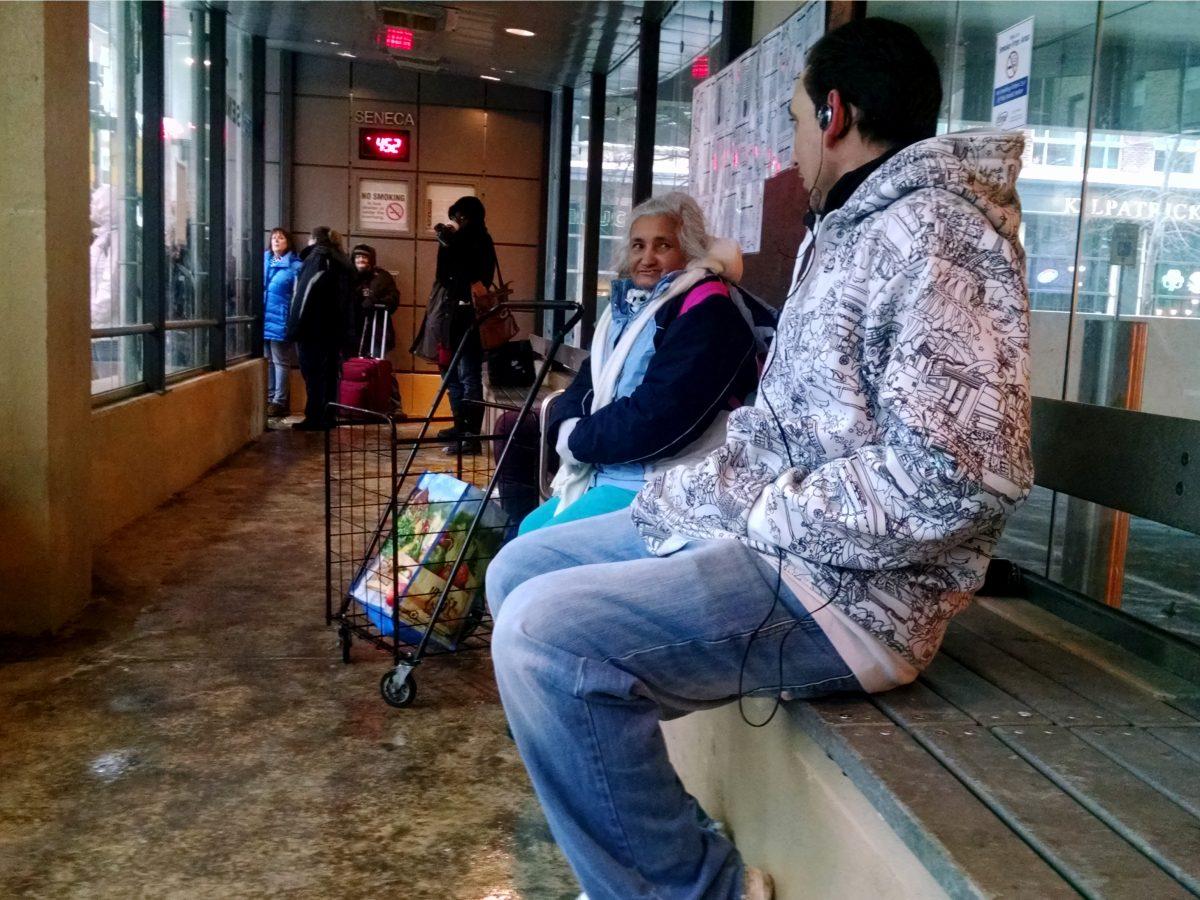The 67-year-old woman takes public transportation to pick up her social security checks from West State Street–the same street where she has collected her veteran’s benefits since her military husband passed away. Together, her two income sources cover just the basics: rent, groceries and the bus fare to pick up the checks.
Acosta, who was born in Puerto Rico, lives in Newfield to care for her brother with cancer. College students used to give her empty beer cans, so she could recycle them for loose change at the grocery store. She knows the struggle of the more than 46 percent of people in Ithaca, who, according to the U.S. Census Bureau, live below the poverty line. A February study by the Martin Prosperity Institute found that Ithaca has the most economically segregated service class in the country. In other words, the gap between the rich and the poor is more pronounced here than in any similar city in the United States.
“I think it’s a shame that people in our community are faced with not being able to afford to eat,” Meaghan Rosen, program coordinator at the Friendships Donation Network (FDN), said. “They have to choose, am I going to pay my rent this month or buy this medicine that I need? Those are choices that nobody in the world should have to make.”
The FDN, which is based in Ithaca, is one of several local organizations working to eliminate the economic gap and help those in need by redistributing donated food, that would otherwise be wasted, to local food pantries.
Forty-six percent of American workers are part of what the study calls the service class. Its members, who work jobs including retail sales and personal care, earn an average of $30,000 per year, less than half the salary of members of what the study called the “creative” class earn.
Service class workers hold low-skill, low pay jobs, and their salaries hover around the 2015 federal poverty line, which is $24,250 for a family with two children and $32,570 for a family with four.
“There are many different ways to go about [improving conditions for the service class]. We believe wages are clearly just one of those ways, and there’s a lot of things that stay in the way of it,” Pete Meyers, Director of the Tompkins County Workers Center, said.
Nonprofits are helping employ more local workers at living wages. Finger Lakes ReUse, which takes advantage of used materials, has created 18 living-wage jobs since it opened in 2009.
“There’s all sorts of skill sets and problem-solving and different work-related quality skills that you have to employ in order to reuse materials,” Diane Cohen, executive director of Finger Lakes ReUse, said. “So, it’s something that we really believe in that can actually help transform local economies,”
While Meyers does not think service class conditions have improved much in recent years, he recognizes that some local businesses appear to be joining the national movement to foster change.
“I think that [Ithaca] is firmly in that movement,” he said. “And most of that movement tends to be in bigger cities, so we need to have it happen in more rural areas.”
Mayor Svante Myrick did not answer questions about the study’s findings and instead directed inquiries to the text of his State of the City address, in which he said “we must continue to grow our economy – and make sure our economy works for everyone.”












